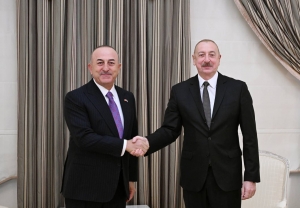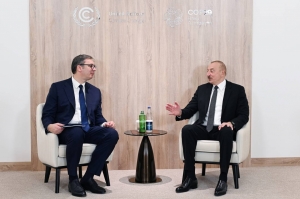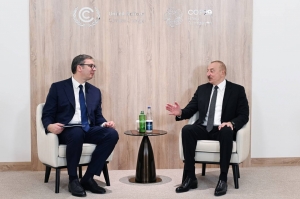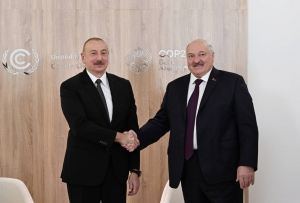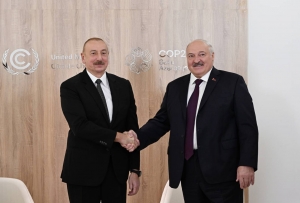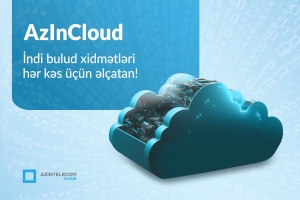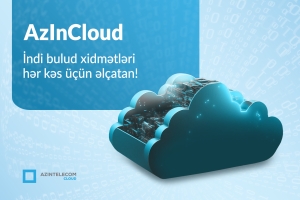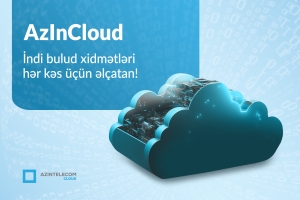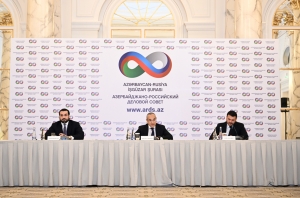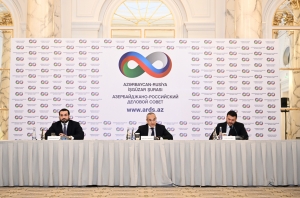Super User
Ильхам Алиев принял бывшего министра иностранных дел Турции Мевлюта Чавушоглу
4 декабря Президент Азербайджанской Республики Ильхам Алиев принял бывшего министра иностранных дел Турции, депутата Великого национального собрания Турции и главу делегации в Парламентской Ассамблее НАТО Мевлюта Чавушоглу.
На встрече было отмечено, что дружеские, братские и союзнические отношения между нашими странами успешно развиваются во всех сферах, в том числе на межпарламентском уровне, выражена уверенность в дальнейшем укреплении двусторонних связей.
Об этом сообщает “Caspian Energy Media” со ссылкой на официальный сайт главы Азербайджанского государства.
Ильхам Алиев встретился с Президентом Сербии
11 ноября Президент Азербайджанской Республики Ильхам Алиев встретился с Президентом Республики Сербия Александаром Вучичем.
На встрече было выражено удовлетворение двусторонними отношениями между нашими странами, отмечена интенсивность взаимных визитов высокого уровня. Состоялся обмен мнениями о сотрудничестве в международных организациях, а также взаимодействии в сфере промышленности, инфраструктуры, инвестиций и возобновляемых источников энергии.
Об этом сообщает “Caspian Energy Media” со ссылкой на официальный сайт главы Азербайджанского государства.
Ilham Aliyev met with Serbian President
On November 11, Ilham Aliyev, President of the Republic of Azerbaijan, met with Aleksandar Vučić, President of the Republic of Serbia.
During the meeting, the Presidents commended the strong bilateral relations between the two countries and noted the frequency of high-level reciprocal visits. They exchanged views on cooperation within international organizations and discussed collaboration in industry, infrastructure, investments, and renewable energy.
“Caspian Energy Media” reports with reference to the official website of the President of Azerbaijan.
Ilham Aliyev met with President of Belarus
On November 11, Ilham Aliyev, President of the Republic of Azerbaijan, met with Aleksandr Lukashenko, President of the Republic of Belarus.
The two leaders emphasized the successful development of bilateral relations across various sectors, along with effective cooperation within international organizations. They noted that the total trade turnover between Azerbaijan and Belarus had increased by 41%.
“Caspian Energy Media” reports with reference to the official website of the President of Azerbaijan.
Ильхам Алиев встретился с Президентом Беларуси
11 ноября Президент Азербайджанской Республики Ильхам Алиев встретился с Президентом Республики Беларусь Александром Лукашенко.
В ходе беседы было подчеркнуто, что двусторонние отношения успешно развиваются во всех направлениях, отмечено эффективное сотрудничество в рамках международных организаций, сообщено, что общий товарооборот увеличился на 41 процент.
Об этом сообщает “Caspian Energy Media” со ссылкой на официальный сайт главы Азербайджанского государства.
“AzInTelecom” LLC Launches New AzInCloud Platform
“AzInTelecom” LLC, operating under the Ministry of Digital Development and Transport, has launched its new AzInCloud platform accessible for all.
AzInCloud is a self-service public cloud platform accessible to everyone, including all organizations, small and medium enterprises, entrepreneurs, and individuals.
The primary goal of the AzInCloud platform is to promote digital transformation, and enhance the role of businesses and individuals in the digitalization process.
“Caspian Energy Media” reports with reference to “AzInTelecom”.
OOO “AzInTelecom” запускает новую платформу AzInCloud
ООО «AzInTelecom», функционирующее при Министерстве цифрового развития и транспорта, запустило новую платформу AzInCloud, на которой каждый сможет воспользоваться облачными услугами.
Платформа самообслуживания AzInCloud представляет собой общедоступный облачный сервис, доступный всем учреждениям, крупным компаниям, малому и среднему бизнесу, индивидуальным предпринимателям и частным лицам.
Главная задача платформы AzInCloud — способствовать цифровой трансформации, и укреплять участие бизнеса и граждан в процессе цифровизации. Подробную информацию можно получить на веб-сайте платформы.
Об этом сообщает Caspian Energy Media со ссылкой на официальный сайт “AzInTelecom”.
“AzInTelecom” MMC yeni “AzInCloud” platformasını istifadəyə verib
Rəqəmsal İnkişaf və Nəqliyyat Nazirliyinin tabeliyindəki “AzInTelecom” MMC hər kəsin “bulud” xidmətlərindən faydalana biləcəyi yeni “AzInCloud” platformasını istifadəyə verib.
Ölkənin ən böyük “bulud” provayderi olan “AzInTelecom” MMC platforma üzərindən müasir alətlərlə təchiz olunmuş “bulud” xidmətləri təqdim edir.
Özünəxidmət platforması kimi fəaliyyət göstərən “AzInCloud” ictimai “bulud” xidməti hesab olunur və bütün qurumlar, o cümlədən kiçik və orta bizneslər, fərdi sahibkarlar, eləcə də fiziki şəxslər üçün əlçatandır.
“AzInCloud” platformasının əsas məqsədi biznes mühitində rəqəmsal transformasiyanı təşviq etmək, Azərbaycanda bizneslərin və fərdlərin rəqəmsallaşmadakı rolunu artırmaqdır.
Bu barədə “Caspian Energy Media” “AzInTelecom”-a istinadən xəbər verir.
Baku hosts meeting of Azerbaijan-Russia Business Council
Baku hosted the latest meeting of the Azerbaijan-Russia Business Council.
The event brought together over 90 member organizations and institutions operating in various sectors of the economy, including agriculture, mechanical engineering, petrochemicals, banking, logistics, and others, alongside official representatives.
In accordance with the agenda of the meeting, elections were held for the Board of the Council. Emin Agalarov, founder of Agalarov Development Company, was elected as the Chairman of the Board of the Azerbaijan-Russia Business Council, while Yusif Abdullayev, Executive Director of the Azerbaijan Export and Investment Promotion Agency (AZPROMO), and Gambar Bananyarli, Director of Nardaran Invest LLC, were elected as Deputy Chairmen.
“Caspian Energy Media” reports with reference to the Ministry of Economy.
В Баку состоялось заседание Азербайджано-российского делового совета
В Баку состоялось очередное заседание Азербайджано-российского делового совета.
Наряду с официальными лицами, в мероприятии приняли участие более 90 представителей организаций и структур, работающих в различных сферах экономики, в том числе сельском хозяйстве, машиностроении, нефтехимии, банковском секторе, логистике и других сферах.
Согласно повестке дня заседания были проведены выборы в состав правления Совета. Председателем правления Азербайджано-российского делового совета стал учредитель компании Agalarov Development Эмин Агаларов, заместителями председателя правления избраны исполнительный директор AZPROMO Юсиф Абдуллаев и директор ООО Nardaran Invest Гамбар Баненярлы.
Об этом сообщает “Caspian Energy Media” со ссылкой на Министерство экономики.




